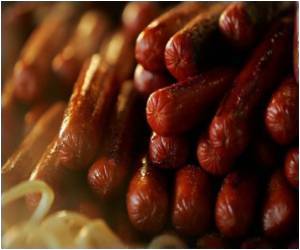The debate over what to serve in school canteens has raged on and off for years in France, which prides itself on its 1905 law separating the state and religion.

"Can we force a Catholic child to eat meat on Good Friday because nothing else is available, or a Jewish or Muslim kid to eat pork?," the lawmaker from the centrist UDI party asks on his online petition, which has garnered more than 123,000 signatures so far.
"I will submit a draft bill to make vegetarian menus obligatory in all canteens as an alternative to daily menus to allow those who do not want meat or fish, whatever the reason, to eat healthily."
- 'Just don't eat pork' -
The debate over what to serve children in school canteens has raged on and off for years in France, which prides itself on its 1905 law separating the state and religion, but also has Europe's largest Muslim and Jewish populations.
There are no overarching guidelines that govern what should be put on children's plates and it is up to more than 34,000 mayors around the country to take their own decisions.
Advertisement
The only city that serves up halal meals is Strasbourg in the northeastern region of Alsace, which was under German rule in 1905 when France voted in favour of the separation of state and religion and is therefore not bound by secularity laws.
Advertisement
"We have to respond to regulations currently in place today, which are to serve well-balanced meals," she says.
"We don't have to worry about any other demands at school, which is secular."
"Pork is not served up that often, and parents know it. The days when there is pork, children just don't eat pork, and parents make up for the lack of protein in the evening, it's that simple."
- Deserting public schools -
Not so for Francois Pupponi, the mayor of the Paris suburb of Sarcelles, known for its ethnic diversity and large Jewish population.
"Those who have such extreme positions... don't understand that they are achieving the exact opposite of what they are looking for," he said.
"They will end up with a secular public school, but there will be no-one left. All those who are religious will leave, and public schools will no longer be a place where people mix, a place of dialogue and education for all."
Pupponi said many Jewish children now attended private schools due in part to the lack of kosher meals in public establishments.
"I have parents who have told me they want to put their children in public school, but they want them to eat kosher. And today, we're starting to see the same phenomenon with Muslims."
So what about the vegetarian option that Jego is championing?
Too costly, tough to create well-balanced menus and children will probably avoid them, say critics.
But the central city of Saint-Etienne has served them up since January after new mayor Gael Perdriau realized that some children did not eat all their food for religious reasons.
The additional meals come at no extra cost for parents or authorities.
Now, 15 percent of school children pick the vegetarian option, he says, which on a typical day might consist of a lentil salad, omelette with carrots and rice, cheese and fruit.
"This solution addresses different issues -- vegetarian or religious issues -- without getting into debates that I find a little unhealthy, where people argue that if you don't like a certain type of food, then don't eat it," Perdriau said.
Source-AFP











